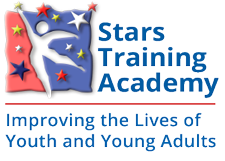In this period of social distancing, it can be difficult to effectively engage with youth. Revisit these strategies, that, with a few adjustments, will serve your team as you continue to communicate and support progress with your young people during the pandemic.

Remind your team personnel about the power of Futures Planning with their young people.
- Of course, young people are extremely frustrated with disruptions of their own goals such as working, schooling, being with friends, or accessing the gym for exercise and fun.
- Transition Facilitators can do a lot to support their young people by working with them to adjust goals and/or steps to achieving goals – such as:
- Can’t work at the motel -- but can now put the time into an online hotel management course.
- Gym has been closed so now using a video fitness program from the web.
- Learning to enhance one’s emotional coping skills, through a relaxation app and coming to apply it in everyday life with family, friends, and/or co-workers.
- Continuing to keep up some social connections through meeting at a park and walking, meeting virtually, and/or using masks and social distancing.
- When the TF can’t be together with her/his young person, see what guidance and coaching might be possible through texting, phone calls, or Zoom to continue advancing the young person’s agenda related to such things as:
- Accessing and using online learning and recreation
- Applying emotional regulation skills
- Learning improved self-management skills for studying
- Improving interpersonal interactional skills
- Keeping in touch with supportive people
- Applying the SODAS Problem Solving & Decision Making method
- Maintaining personal safety and supporting community safety
Click here to download a Futures Planning Overview that you might want to send to each of your TFs.

Due to the unique service challenges of the times, our TIP Model Consultants are strongly encouraging you to continue providing your Team personnel with monthly TIP Solutions Reviews.
- TSRs can be conducted on Zoom or conference calls.
- They set the occasion for the Transition Facilitators to:
- Share ideas for addressing challenges with a young person.
- Collaboratively problem solve issues related to one young person -- and then generalize it to other young people they are serving.
- Support each other emotionally and tangibly.
Click here for the TSR Monitoring & Mentoring Checklist that you can use as a self-help guide.
With creativity and camaraderie, TIP Model principles and practices can be applied via texting, calling, Zoom, or in-person with social distancing and masks. We know you and your personnel are dedicated to your young people and are doing extraordinary things to help them stay safe and continue their forward movement. We hope these suggestions might assist you a bit more in these efforts.



